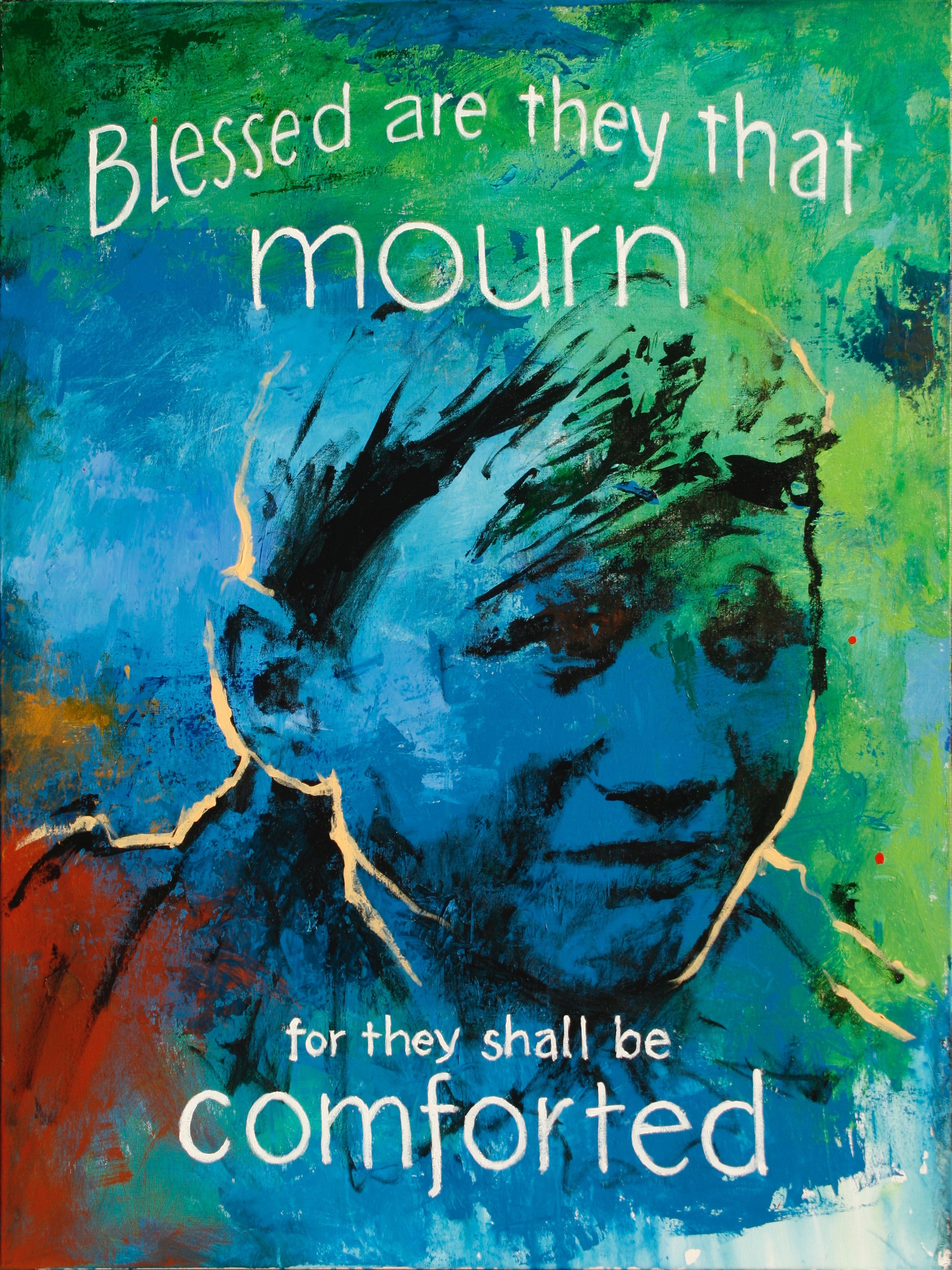The Beatitudes in PaintНамуна


Those Who Mourn
Jesus was a man of sorrows, acquainted with grief. He wept over Jerusalem for their disbelief, he wept at the grave of his friend Lazarus. In that account, so did the sisters of Lazarus, lamenting their loss and that Jesus had not come sooner. But Lazarus was resurrected and later they hosted a banquet; they were comforted.
There will be another banquet to come where all tears will be gone, and only good will remain. But for now, many mourn.
Jesus said, "Blessed are those who mourn," not "Blessed are those who have mourned." Mourning is a constant in the lives of some; it's at least sometimes for all. Jesus told us, that in the world, we will have tribulation, then adding he has overcome the world, and that his blessing is there.
Mourning is a natural part of life and can lead to hope because God promises to bring healing and restoration to those who mourn sincerely. We mourn for others, we mourn for ourselves. We mourn over our own sin, it causes us grief and this can be healthy. Even the apostle Paul confessed it, mourning his lack of self-control. His great comfort was the saving grace of Christ. It's so with us. Even the apostle Paul confessed it, mourning his lack of self-control. His great comfort was the saving grace of Christ. It's so with us.
In a parable Jesus spoke of two men praying on the temple mount, one expressing his gratitude, was not like the other man, weak and sinful; the other beat his breast in repentance. It was the one who mourned that was comforted.
When Isaiah prophesied of Jesus, he said he would "proclaim the year of the Lord’s favor and the day of vengeance of our God, to comfort all who mourn."
If you mourn, it's not the end; your comfort will come.

About this Plan

The Beatitudes is the title tradition has given to this most succinct series of blessings that came from the mouth of Jesus. They are the opening summary of "The Sermon on the Mount," found in Matthew 5 through 7, the most famous sermon of all time. Here are the Beatitudes illustrated in paint, with accompanying meditations.
More
Нақшаҳои марбут ба мавзӯъ

Find & Follow Jesus, Quarter 1

Relationship Road Map

His Name Shall Be Called

How Do You Follow Jesus?

Build Like Nehemiah Pt.2

Under Construction: Lessons From a Pumpkin Patch

The Magnificent Grace of God Devotional

This Is the Way: A 30-Day Journey Through the Book of Acts

Intentionally Appreciating Our Children: A 3-Day Parenting Plan
